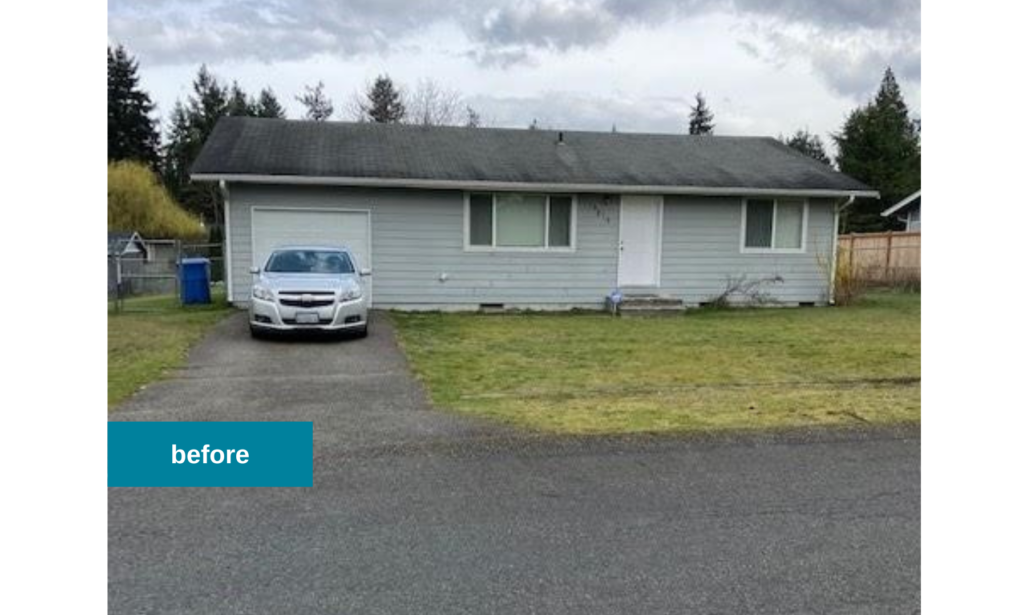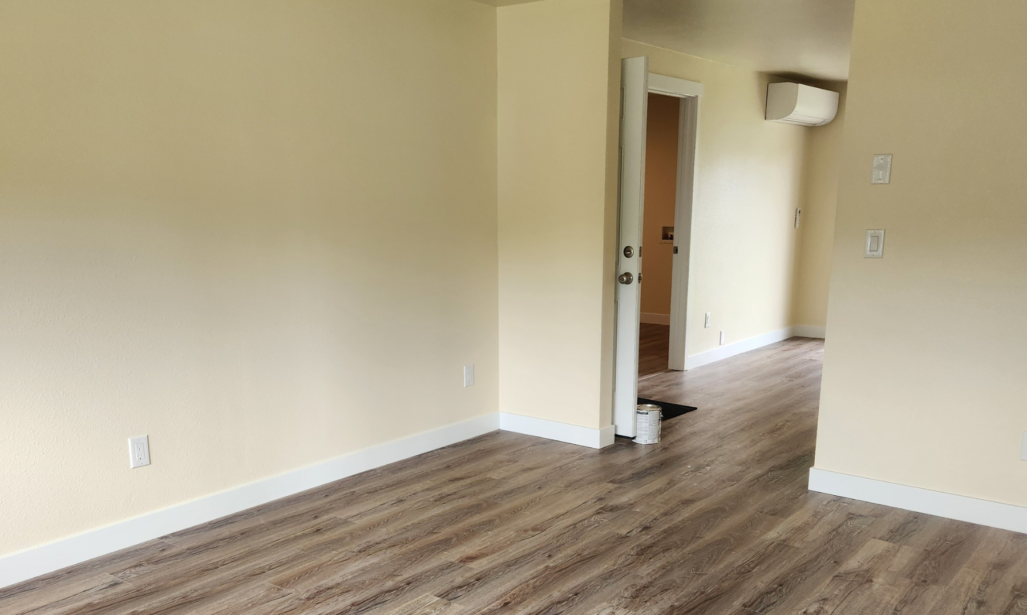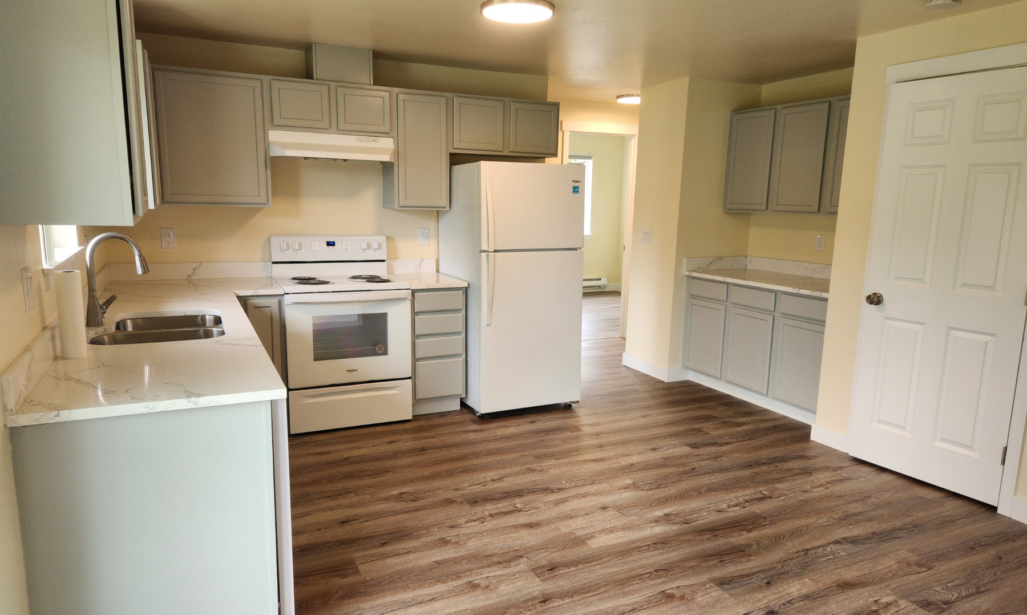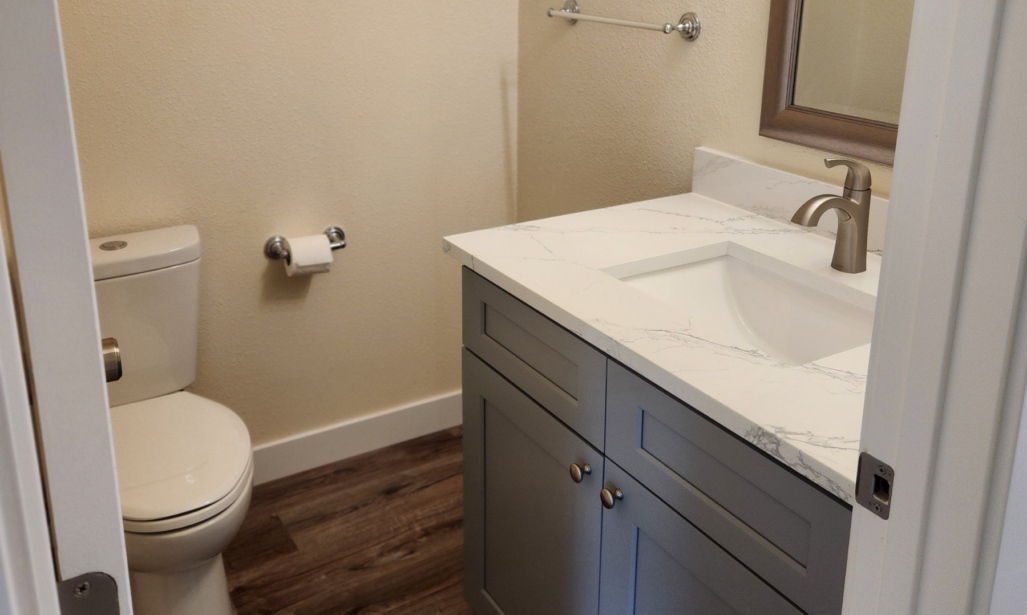Tacoma/Pierce County Habitat for Humanity has an unprecedented opportunity to immediately purchase 80 homes to create both opportunity and access to homeownership for underrepresented, income-qualified families.
The need is great. The opportunity is now. The time is now.
Helping families obtain affordable, accessible homes that set them on a path to greater stability and brighter futures—this is the core of our mission at Tacoma/Pierce County Habitat for Humanity.
With 38 years of experience providing life-changing stability to families needing affordable homes, Tacoma Habitat responds to the dynamic housing needs of our community with innovative solutions. Most often, we achieve this through new home construction, but another critical path to creating affordable housing is through home preservation.
Now, Tacoma Habitat has an unprecedented opportunity to immediately purchase existing homes to expand access to entry-level homeownership for income-qualified families. Pierce County Housing Authority (PCHA) is selling its single-family rental properties in the Parkland/Spanaway area, and Tacoma Habitat was selected as a preferred bidder after committing to preserve up to 80 units for affordable homeownership in perpetuity.
If Tacoma Habitat doesn’t preserve these divested PCHA homes for affordable homeownership, there is a high probability that they will be purchased at market rates by higher income owners or investors. Our community simply can’t afford to pass up this opportunity and lose these homes to the open market.
Tacoma Habitat’s vision is to build and foster thriving communities where everyone has a safe, stable, and affordable place to call home. Today, we can begin making that vision a reality in Spanaway/Parkland with 80 first-time homebuyer families.

Learn More
-
About the Homes
-
The divested PCHA homes are from the Pierce County Housing Authority’s (PCHA) single-family, Low-Income Public Housing (LIPH) portfolio and are mostly located in the Spanaway and Parkland communities, with additional small clusters in Bonney Lake, Elk Plain, Graham, and on the Peninsula. Some of the homes are grouped on the same street, and others are scattered sites. All of the homes under consideration average between 1,200 sq ft – 1,400 sq ft, have 3-4 bedrooms, 1-2 baths, and all properties have yards and single-car garages. The homes were acquired by PCHA through the 1980’s and 1990’s and are mostly single-story ramblers.
Before entering the bidding process, Tacoma Habitat did a windshield survey on all 124 properties. Based on the geographic location and anticipated rehab required for each unit, we narrowed the scope to 80 homes that our organization can reasonably manage. Most of the properties are in the Parkland/Spanaway area, and are part of either the Bethel or Franklin Pierce School Districts.
From the initial screening, it is anticipated that, at a minimum, all homes will need new flooring, interior and exterior paint, and various minor repairs. Many also need new roofs, windows, appliances and garage doors. As Tacoma Habitat gains possession of each home, the renovation plan and budget for each unit will be refined based on the needs of the particular property.
-
Financing the Project
-
The total cost for this project is projected to be $43M, which includes the purchase and renovation of 80 PCHA properties and the cost of recruiting and preparing homebuyers. Of that $43M, the Building Hope campaign expects to raise $7M from philanthropic partners.
The first investment came from the Pierce County Council, which allocated $1.5M to the project and expressed their unanimous support for the project to the Washington State Legislature. The State Legislature then allocated $14M from the state’s Capital Budget in 2023. Other funding for the project will come from homebuyer mortgages and down payment assistance as homes are sold.
-
Homebuyer Qualifications
-
The average Tacoma Habitat homebuyer is a first-time homeowner with an income of $66,000+ and a credit score of at least 620. Habitat homebuyers must be income-qualified, living between 60-80% of the Area Median Income (maximum of $92,650 for a family of four), and meet the following eligibility criteria:
- Need – as evidenced by income under 80% AMI and circumstances that may include paying too much for rent; overcrowded living conditions; living with family or friends and/or living in unsafe or unhealthy environments.
- Ability to pay – have stable and verifiable income, have a credit score of at least 620, recurring debt payments less than 13% of the household’s gross income, can secure a third-party mortgage and pay a modest earnest payment. Homebuyers pay an affordable mortgage, set at no more than 35% of their household income.
- Willingness to partner – help Tacoma Habitat build homes through sweat equity investment, maintain eligibility from application through closing, and attend required homebuyer education and financial literacy workshops to prepare for the responsibilities of homeownership.
For prospective buyers that aren’t yet mortgage-ready, referrals are offered to Tacoma Habitat’s no-cost housing counseling program. A HUD-approved housing counselor will provide one-on-one coaching to assess and improve their financial health, increase income/savings, and set housing goals. Overtime, many housing counseling clients either enter the Habitat homeownership program or pursue homeownership in the open market.
Tacoma Habitat homeowners come from a variety of backgrounds, jobs, religions, and cultures. Historically, 59% of Tacoma Habitat’s homebuyers are BIPOC community members, though since 2019 that number has been closer to 76%. Furthermore, 71% of Habitat homebuyers are single-parent households.
-
Restricted Resale Model
-
To further preserve affordability, Tacoma Habitat adopted a restricted resale model in 2021.
Similar to a land trust, a buyer purchases a Habitat home while leasing the land through a long-term, low-cost, renewable, and inheritable lease. In the sales contract, homebuyers agree to a capped equity share, a resale formula based on the number of years they hold residency in the home. When/if they choose to sell, the homeowner agrees to only sell to an income-qualified buyer, making less than 80% AMI. Each time a unit is sold, a new 99-year ground lease is signed, ensuring that the homes that Habitat sells are affordable in perpetuity for modest-income families who would otherwise be compressed out of the housing market.
The resale formula ensures that homes remain affordable in perpetuity, serving the first buyer and every buyer into the future.
Frequently Asked Questions
-
Why is Pierce County Housing Authority (PCHA) selling these homes?
-
Pierce County Housing Authority (PCHA) isn’t alone in divesting its rental properties. Neighboring cities and counties paved the way with their own restructuring plans—including the Tacoma, Everett, and Kitsap Housing Authorities—and and the trend is also reflected on a nationwide scale.
Five years ago, PCHA set out a plan to sell its single-family Low-Income Public Housing (LIPH) portfolio consisting of 124 single-family homes and leverage proceeds to expand its affordable multi-family rental housing. The decision was made, in part, due to the financial burden of growing maintenance needs for the aging houses which is estimated to be upwards of $27,000,000 within the next 15 years—an expense well beyond their current grant allocation and capacity to manage. Additional factors include the vast geographical distance separating the properties and the burden on residents to upkeep these properties without proper resources.
The PCHA repositioning plan is unique in that the organization is not only preserving the units’ affordability, but is also extending homeownership opportunities to its tenants. Through the repositioning, all properties will first be offered to existing tenants for purchase and then any qualified voucher program participant will have the chance to purchase from the LIPH portfolio. Following PCHA tenants, the next preferred sales priority will go to affordable housing organizations like Tacoma Habitat.
PCHA expects to provide all current resident households with housing that better suits their needs and qualifications, eventually place 150 additional households on rental subsidies, generate up to $200,000,000 to develop more affordable housing, and do it all while removing the fewest possible units from the county’s affordable housing stock.
Learn more about PCHA’s repositioning plan here.
-
What happens to the current tenants?
-
PCHA has been communicating with the current tenants about the planned repositioning over the last two years. PCHA has not renewed leases and is wholly responsible for rehousing each resident family.
All impacted PCHA / LIPH residents will be offered “first right of refusal” to purchase the home they reside in and/or another available home in the portfolio. Residents for which this is not a viable option will be transferred onto a Tenant Protection Voucher, which preserves their 30% income calculation for rental housing subsidies. They will be assisted by a Relocation Specialist at PCHA, and in addition to their regular subsidy, PCHA will also provide funding for application fees, administrative fees, pet deposits, security deposits and will contract with moving services. No resident will be forced to face a financial burden through the repositioning process.
Through the repositioning process, PCHA expects to provide all current resident households with housing that better suits their needs and qualifications, eventually place 150 additional households on rental subsidies, generate up to $200,000,000 to develop more affordable housing, and do it all while removing the fewest possible units from the county’s affordable housing stock.
-
What is the timeline?
-
PCHA anticipated that 25-40 units will be vacated by existing residents in 2023, with an additional 40 in 2024 and the remainder in 2025.
The pace of the purchases is dependent on when the current residents are rehoused by PCHA. Tacoma Habitat will not take ownership of any unit until the units are vacant.
In June of 2024, Tacoma Habitat celebrated the first two home dedications and welcomed the first buyers of the project home.
-
How long will it take to purchase and rehab a home before resale?
-
The working goal is to complete each renovation and sale within 6 months of acquiring a property. The units will become available on a rolling basis, allowing Tacoma Habitat to gradually manage projects over the next 3-5 years.
-
Is this a cost-effective way to add housing stock?
-
With challenges to find and purchase affordable land with Pierce County, this is the quickest and more efficient way to add this volume of homeownership units to Habitat’s inventory in a short span of time. However, it is not less expensive than new construction. This is a balance of time and money. These homes will be available for first-time homeowners faster than new construction and allow Tacoma Habitat to serve more families.





